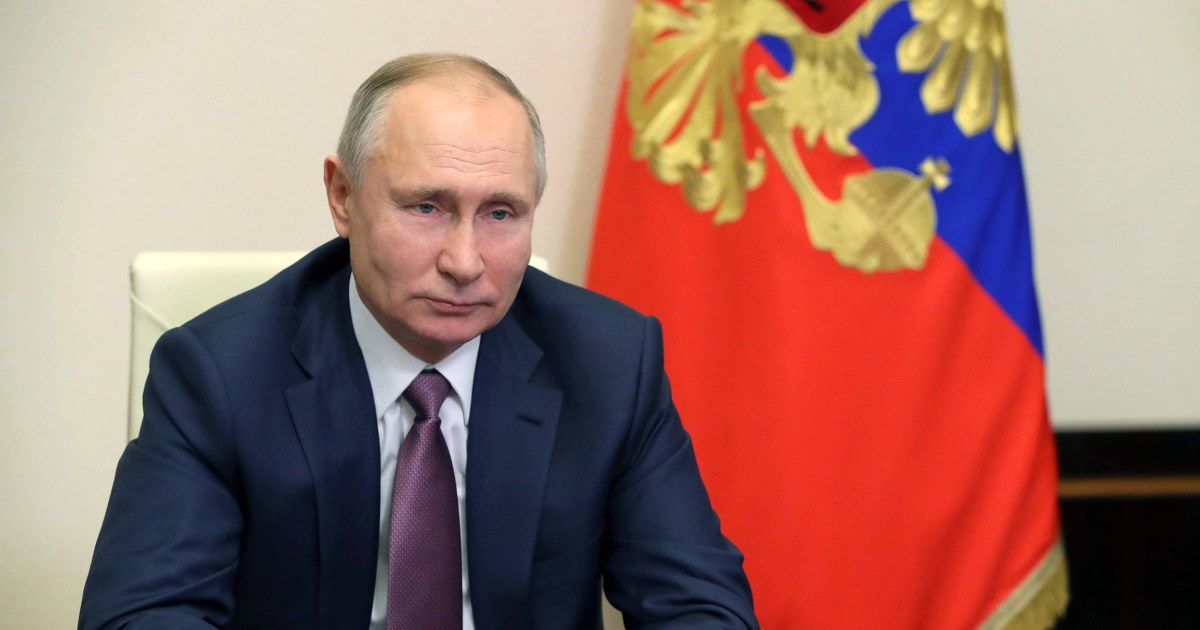MOSCOW – President Vladimir Putin signed a series of laws on Wednesday giving Russia new powers to restrict US social media giants, label individuals as “foreign agents” and crack down on the disclosure of personal data by its security officials .
The laws, which also introduce new restrictions on protests, end a year of constitutional reforms that allow Putin, 68, to run for two more six-year terms in the Kremlin, instead of resigning in 2024, as he was legally obliged to do. .
Other reforms, such as granting former presidents lifelong immunity from prosecution, have kept analysts guessing about their plans, as Moscow’s ties to the West are under new pressure due to the poisoning of the Kremlin critic, Alexei Navalny.
Download the NBC News app for breaking news and politics
One of Wednesday’s laws allows Russia to block or restrict access to sites that “discriminate” against its media, part of a campaign by Putin to increase Russian “sovereignty” on the Internet that has fueled fears of Chinese-style creeping controls.
Twitter currently labels some Russian media outlets “state-affiliated media,” a move condemned by Moscow. Advocates of the law cited complaints made about prejudice shown by Facebook, Twitter and YouTube.
A second law introduces heavy fines of up to 20% of the previous year’s revenue based in Russia for sites that repeatedly fail to remove banned content, something YouTube and Facebook often failed to do according to Russian lawmakers.
A third law prohibits the disclosure of personal data by Russian security officials, records that sometimes leak online and are used by investigative journalists to track clandestine operations.
Earlier this month, the investigative website Bellingcat used flight records and other data to identify a group of alleged agents of the Federal Security Service that Navalny accused of trying to poison him in August, an allegation denied by Moscow.
Other new laws introduced prison sentences of up to two years for online libel, as well as new regulations that would prohibit the financing of protests by “foreign agents” and allow rallies to be banned due to emergencies.
Another law gave authorities new powers to label individuals as “foreign agents” and also to arrest them for five years if they did not report their activities correctly.

